
An overview on the 4 sacred medicines of First Nations peoples.
- Subject:
- Agriculture Production
- Agriculture Studies
- Material Type:
- Open Access Asset
- Author:
- TN
- Date Added:
- 04/12/2024

An overview on the 4 sacred medicines of First Nations peoples.
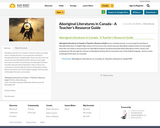
Aboriginal Literatures in Canada: A Teacher’s Resource Guide serves a double purpose: to encourage the teaching of Aboriginal literature in English high school curricula across the country because Aboriginal students deserve to be taught texts they can relate to and, because non-Aboriginal students should be educated about Aboriginal culture, history and contemporary life through the richness of Aboriginal writing with its innovative uses of the English language. Various works of Aboriginal literature are included.

Indigenous Peoples have indicated that financial education is a priority for them and complements other training programs in their communities. . To be successful, financial literacy interventions must be community driven, created by and for Indigenous Peoples. These videos and activities allow students to explore the story of a social entrepreneur and leader who values financial literacy and gives back through his business to help his Indigenous community create a better tomorrow.First Nations entrepreneur Mark Marsolais-Nahwegahbow works hard to ensure his family’s financial wellness while making a real impact on his community. He founded a social enterprise that brings fresh drinking water to Indigenous families across Canada. https://www.youtube.com/watch?v=0A-6JzC0IcwThe activities include multiple choice, vocabulary, short answer and open ended questions giving the students an opportunity to review advice on being an entrepreneur, giving back to your community and providing for your family and future.
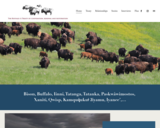
The Buffalo: A Treaty of Co-operation, Renewal and Restoration.
This site offers the history of this Treaty, the relationships it involves, related films and news articles and access to the Buffalo Treaty blog.
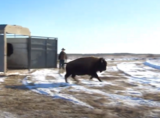
This video explores the return of buffalo through First Nations sharing and gifts. This is a great resource when exploring Indigenous agriculture and the impact of settlement on Indigenous agriculture.
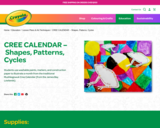
Students use washable paints, markers, and construction paper to illustrate a month from the traditional Cree Calendar
Students will be able to:
illustrate a month from the traditional Cree calendar;
demonstrate an understanding of the changes, cycles and patterns that occur in nature through words and images;
draw/paint geometric and organic shapes;
create the illusion of depth in space using size;
connect personal life experiences to their artworks.
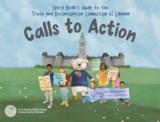
In 2008, a group called the Truth and Reconciliation Commission (TRC) was made. Their job was to listen
to stories about residential schools and then write the stories down so we can learn from our mistakes.
In 2015, the Truth and Reconciliation Commission announced their 94 Calls to Action. These are 94
activities all governments, courts, businesses, schools, and people living in Canada can do to help fix the
mistakes of the past and present so that all children – including First Nations, Métis, and Inuit children –
can grow up happy, healthy, safe, and proud of who they are.
This booklet is written by Spirit Bear as a youth-guide to the TRC’s 94 Calls to Action. Each of the calls is outlined in student-friendly language that will give them a deeper understanding of Truth and Reconciliation process.
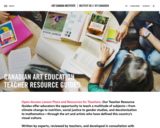
Canadian art is a door to learning about a wide range of subjects.
The Art Canada Institute teacher resource guides presented here offer students the opportunity to study a multitude of subjects—from environmental awareness to activism, social justice to gender studies, politics to computer science (to name a few)—through the art and artists who have defined this country’s visual culture.
Following our provinces’ education curricula, the teacher resource guides provide multidisciplinary learning activities that reveal how Canadian art powerfully reflects our world so we can better understand it.
Activities for K-12!

An inquiry-based project to map the land in your community. The key concepts in this unit are grounded in Indigenous beliefs of interconnectedness, connectedness, and respect for all things.
The driving inquiry questions for this unit are:
1. How can respect for the land be shown?
2. What do we look for when setting up a camp?
3. What stories or teachings are connected to key locations in and around our community?
4. How has the land around our community changed over time?
5. Who do we share our community’s lands with?

Cree Code Talker reveals the role of Canadian Cree code talker Charles ‘Checker’ Tomkins during the Second World War. Digging deep into the US archives it depicts the true story of Charles’ involvement with the US Air Force and the development of the code talkers communication system, which was used to transmit crucial military communications, using the Cree language as a vital secret weapon in combat.

This YouTube channel is full of many supports for teaching Cree. It allows the learner to hear the language in context. The channel provides pronunciations and structures to help you move forward and learn on your own!

From October 17th to 22nd, we observe Secret Path Week, an annual event dedicated to honoring the legacies of Gord Downie and Chanie Wenjack. These dates mark the anniversaries of Gord Downie’s and Chanie Wenjack’s entering the spirit world. Chanie, only 12 years old, fled from Cecilia Jeffrey Residential School in Kenora, Ontario, and walked along the train tracks for 36 hours before succumbing to exposure on October 22. Although Chanie is no longer with us, his story lives on through Gord Downie’s album Secret Path.
Join us virtually to learn directly from Indigenous artists, scientists, musicians, writers and more!
Watch Live or Watch Later
Camera Spot
Call In
Write In

Written by award-winning Indigenous author Monique Gray Smith, this magazine, which is based on the Seven Sacred Teachings, is aimed for students in grades 5–12 and is available in both English and French.
Each chapter teaches children about residential schools, Treaties, and the historic and current relationships between Indigenous and non-Indigenous peoples.
Accompanied by supplementary educational resources, the magazine is both a guide and a journal for young people as they explore their feelings, build confidence, and foster greater respect and empathy throughout their reconciliation journeys.
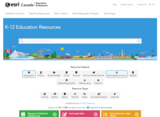
*activities, galleries, lessons, tutorials, course collections!
200 resources!
"Educators and students across Canada can access ArcGIS software, support and teaching resources for free. All our resources are licensed under Creative Commons Attribution-NonCommercial-ShareAlike 4.0 International, and we encourage educators to share and adapt our resources to work with their courses.
ArcGIS is a powerful tool for learning in social studies for various reasons. It allows students to tell stories by visualizing, analyzing, and interpreting data related to location and place. This can be incredibly valuable in social studies, where understanding the spatial relationships between historical events, cultural phenomena, and natural resources can help students develop a deeper and more nuanced understanding of the world around them. Check it out"

This activity can be used to help find the main idea or keyword from a passage of text. This activity is excellent to develop vocabulary and deepen understanding of the content being examined.

This poster describes a set of learning principles specific to First Peoples. The First Peoples Principles of Learning were articulated by Indigenous Elders, scholars and knowledge keepers to guide the development of the curriculum and teaching of the the English First Peoples course created by the BC Ministry of Education and First Nations Education Steering Committee in 2006/2007.
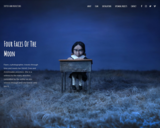
Book- Four Faces of the Moon: is a short graphic novel adapted from a stop motion animated short film that discusses colonization, residential schools and specifically the slaughter of buffalo and other assimilation tactics.
Website- has the stop motion animated film as well as additional information and resources.
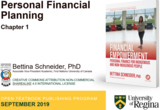
This content covers financial planning, goal setting and elements that influence financial decisions. Uniquely tailored to Indigenous students’ experiences and histories, Financial Empowerment covers a wide range of topics in financial planning, personal finance, and financial decision-making. Threaded throughout with Indigenous and Canadian content, videos with Elders are also included, offering students their perspectives to enhance the learning experience.

Please find a number of units to support high school science from grades 10 in Saskatchewan.

This package is the online accompaniment for our feature travelling education kit: History Box. In this package you’ll find digitized copies of each object found in the box, historical context, additional resources and activity suggestions. You do not need to borrow the kit to use this online resource.
This package contains objects and resources that are represented in the Canadian Museum of History’s signature exhibition, the Canadian History Hall. Collected from across the country, and highlighting varied perspectives, these objects illuminate the richness and diversity of the Canadian experience. They can be used as entry points to discussions on different periods in Canada’s history, or as lessons in historical inquiry that can build students’ critical thinking and historical inquiry skills.
To book a History Box, or for more information, please visit historymuseum.ca/learn/history-box.
The topics covered in this History Box include Early Canada, Colonial Canada, and Modern Canada.
There are two types of activities: Package Activities and Object Activities.
Package Activities are project-based activities designed to accommodate one or more classes. These activities involve the use of historical thinking concepts while exploring the whole package, resulting in a more comprehensive experience.
Object Activities are short inquiry-based activities that typically take 5–25 minutes. These activities encourage students to think critically about the objects being presented, and to use historical thinking concepts.
Both types of activities were created with the guidance of educators from across Canada, and incorporate current educational theory and approaches.
Is everything accessible?
We know that everyone accesses information differently, and have tried to ensure that package content addresses the varied needs of students and educators. Some of the many ways in which these packages support accessibility:
- Three levels of historical context to accommodate different ways of learning.
- A variety of media, including audio and video content, for diverse learning abilities.
- Multiple activity suggestions for diverse learning abilities.
- Content can be read with Assistive Technology applications.
- Downloadable and printable content that can be accessed offline.
- Transcripts for video, audio and hard-to read archival documents.
- Video subtitles in both official languages.
- Content is available in both official languages.
- Website complies with Website Content Accessibility 2.0 AA Guidelines.